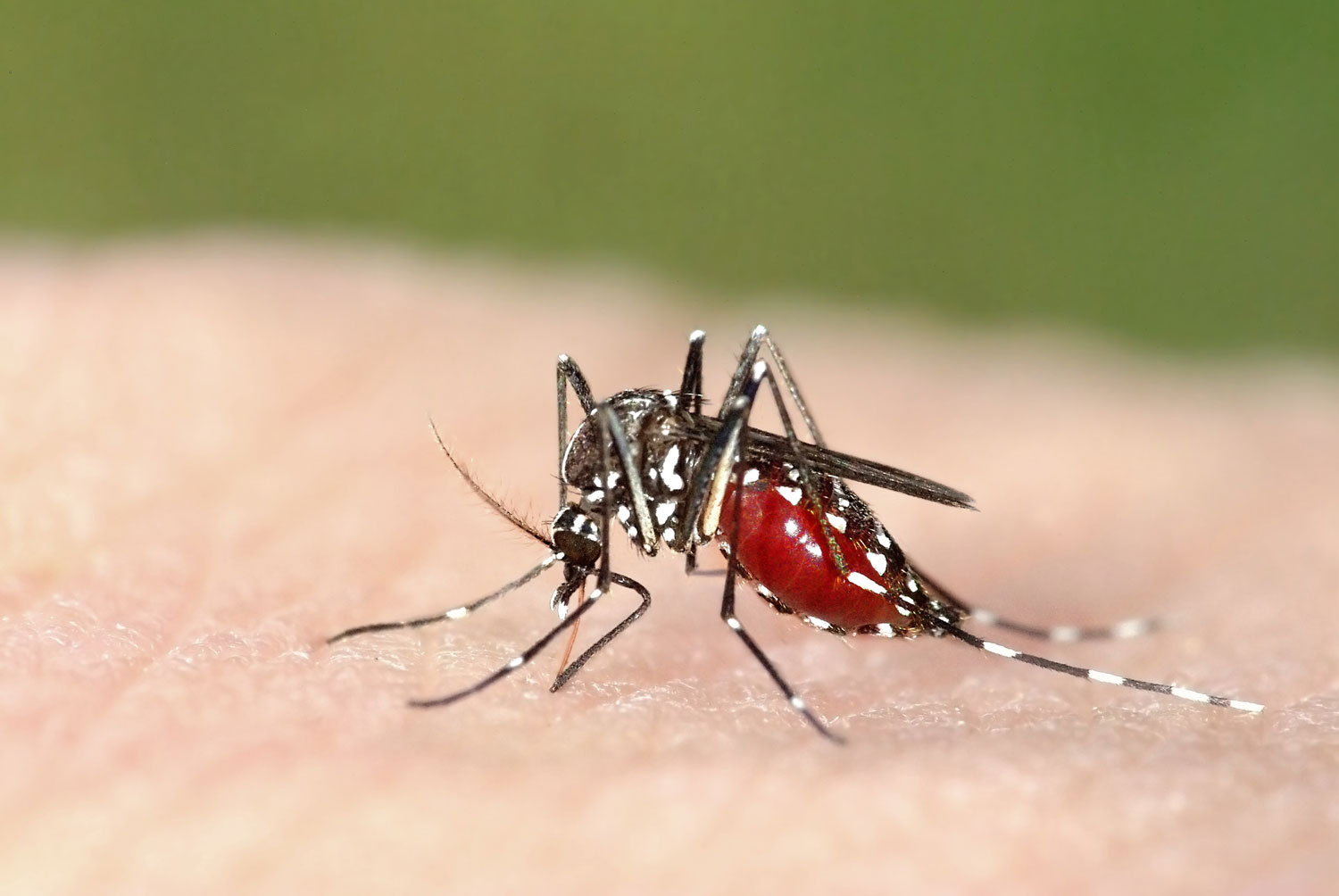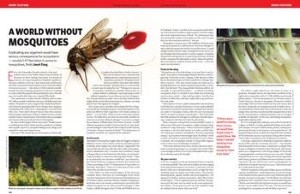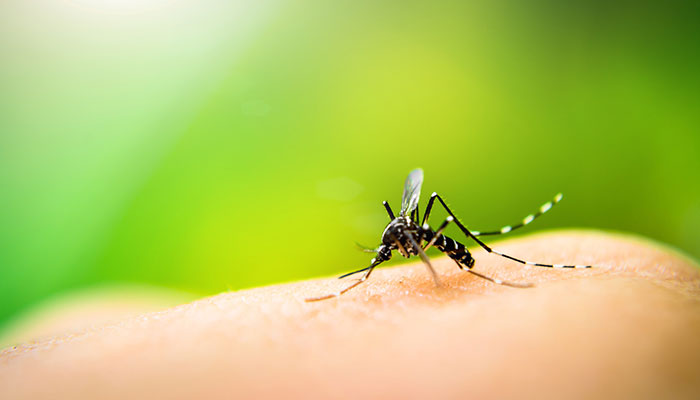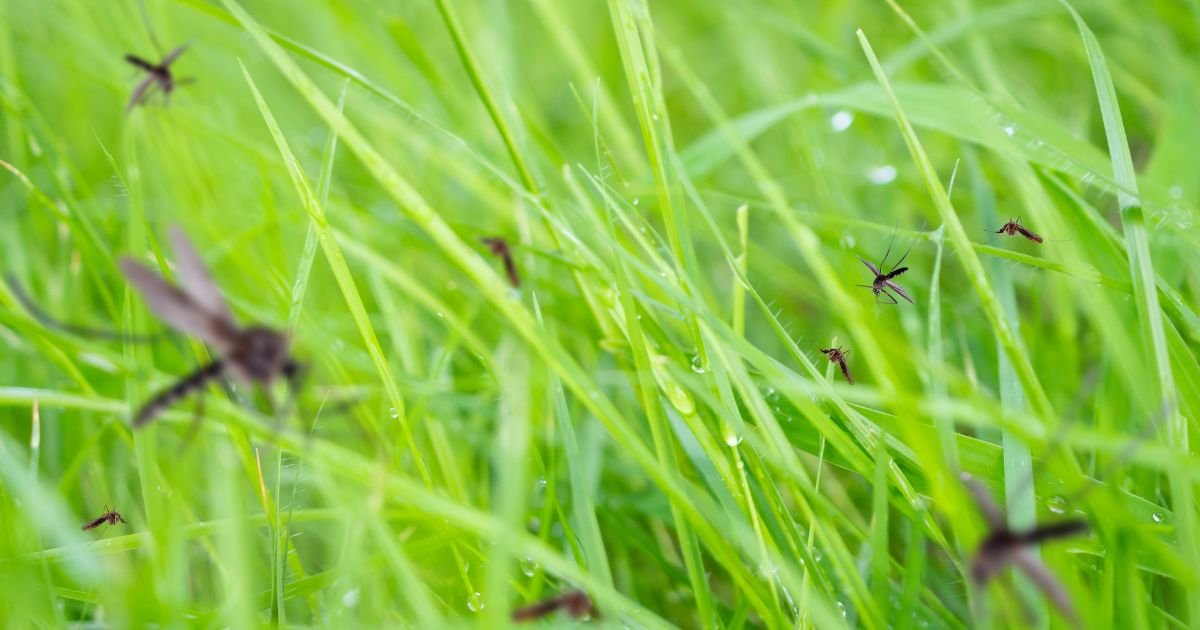Mosquitoes serve as a vital food source for various wildlife, including fish, birds, bats, and frogs. Additionally, some mosquito species play a role in pollination within ecosystems.
Without mosquitoes, the food chain would be disrupted, impacting the survival of many species. These insects may be a nuisance to humans, but they serve an essential purpose in maintaining ecological balance. Whether as larvae or adult flies, mosquitoes contribute to the biodiversity of ecosystems by providing sustenance for a wide range of animals.
Understanding the significance of mosquitoes in nature sheds light on their importance beyond being pesky blood-suckers.
Role Of Mosquitoes In Food Webs
Food For Aquatic Species
Mosquito larvae serve as a crucial food source for various aquatic species.
Food For Terrestrial Predators
Mosquitoes provide sustenance for terrestrial predators like birds, bats, and frogs.

Credit: www.reconnectwithnature.org
Pollination And Plant Interaction
Mosquitoes, often considered as pesky bloodsuckers, actually have a significant role in nature, particularly in pollination and plant interaction. Their interactions with plants play a crucial part in maintaining the balance of various ecosystems.
Nectar Consumption And Pollination
Mosquitoes are known to feed on nectar from flowers, which inadvertently aids in the pollination of plants. While they primarily consume plant nectar, the pollen grains adhere to their bodies as they move from flower to flower in search of this food source. As they travel, they transfer these pollen grains, facilitating the fertilization process and contributing to the reproduction of various plant species.
Impact On Plant Biodiversity
Mosquitoes play a vital role in maintaining plant biodiversity. By acting as pollinators, they contribute to the reproduction and genetic diversity of plants, which is essential for the resilience of ecosystems. The diversity of plants, in turn, supports a wide range of animal species, creating a balanced and sustainable environment.
Mosquitoes And Biodiversity
Mosquitoes are a crucial component of biodiversity, contributing to the complexity and balance of ecosystems. Their impact on species diversity is significant, affecting various aspects of the natural world.
Contribution To Ecosystem Complexity
Mosquitoes contribute to the complexity of ecosystems by serving as a vital food source for numerous organisms. As larvae, they provide sustenance for fish, while as adult flies, they become a crucial part of the diet for birds, bats, and frogs. Some mosquito species also play a role in pollination, further underscoring their importance in maintaining ecosystem balance.
Effects On Species Diversity
The presence of mosquitoes has a direct effect on species diversity, as they serve as a fundamental food source for various predators. Their abundance or scarcity can impact the population dynamics of species that rely on them for sustenance. This interdependence underscores the intricate web of relationships within ecosystems, emphasizing the significance of mosquitoes in maintaining species diversity.

Credit: www.nature.com
Mosquitoes As Disease Vectors
Mosquitoes serve a crucial role in nature as disease vectors, spreading illnesses like malaria and Zika. They also contribute to the ecosystem as a food source for various animals, highlighting their significance in the food chain and as pollinators.
Spread Of Diseases
Mosquitoes are notorious for spreading diseases such as malaria, dengue fever, Zika virus, and yellow fever. Female mosquitoes require a blood meal to produce eggs, and in the process, they can transmit diseases from one host to another. Mosquito-borne diseases are a serious public health concern, especially in tropical and subtropical regions where these insects are prevalent.
Research And Medical Insights
Scientists and medical professionals have been researching the spread of mosquito-borne diseases for decades. They have gained important insights into the biology and behavior of mosquitoes, as well as the pathogens they transmit. This research has led to the development of effective prevention and control measures, such as insecticide-treated bed nets, mosquito repellents, and vaccines. However, the fight against mosquito-borne diseases is ongoing, as these insects continue to evolve and adapt to changing environmental conditions. In conclusion, while mosquitoes do play a role in the ecosystem as food sources for other wildlife and pollinators, their impact as disease vectors cannot be ignored. It is important to continue researching and developing new strategies to prevent and control the spread of mosquito-borne diseases.
Adaptations And Survival Strategies
Mosquitoes serve a purpose in nature as a food source for other wildlife and as pollinators, forming an important part of the ecosystem’s food chain. While they may seem like a nuisance to humans, they play a crucial role in the balance of the natural world.
Mosquitoes are known to be one of the most adaptable creatures on the planet. They have evolved over millions of years to suit their environment and ensure their survival. The adaptations and survival strategies of mosquitoes have enabled them to survive in diverse environments, from the arctic tundra to tropical rainforests. In this section, we will discuss two of the most important aspects of mosquito adaptations and survival: breeding and lifecycle, and survival tactics in diverse environments.
Breeding And Lifecycle
Mosquitoes lay their eggs in standing water, including puddles, ponds, and even artificial containers such as old tires. The eggs hatch into larvae, which then develop into pupae before emerging as adult mosquitoes. The lifecycle of mosquitoes can vary depending on the species and environmental conditions. Some mosquitoes can complete their lifecycle in as little as four days, while others may take several weeks or even months.
Survival Tactics In Diverse Environments
Mosquitoes have developed a range of survival tactics to help them thrive in diverse environments. These tactics include:
- Camouflage: Mosquitoes have evolved to blend in with their surroundings, making them harder for predators to spot.
- Flight: Mosquitoes are highly adept fliers, able to maneuver through complex environments such as dense forests and urban areas.
- Feeding Habits: Mosquitoes have a range of feeding habits, including feeding on plant nectar and blood from a variety of animals.
- Immune System: Mosquitoes have a highly effective immune system that helps them fight off diseases and infections.
In conclusion, mosquitoes have evolved a range of adaptations and survival strategies that have enabled them to thrive in diverse environments. While they may be seen as a nuisance by humans, they play an important role in the ecosystem as pollinators and a food source for other wildlife. Understanding the purpose of mosquitoes in nature can help us better appreciate their role in the environment and develop effective strategies for managing their populations.
Control And Management
Mosquitoes are notorious for their ability to spread diseases and their nuisance during outdoor activities. Therefore, it is essential to understand and implement effective control and management strategies to minimize their impact on human populations.
Natural Predators And Control
Several species in nature act as natural predators of mosquitoes, helping to regulate their populations. These include frogs, dragonflies, ants, spiders, geckos, and bats. For example, dragonfly larvae are voracious predators of mosquito larvae, helping to reduce their numbers in aquatic environments. Additionally, some fish species feed on mosquito larvae, contributing to their control. By promoting the habitats of these natural predators, such as maintaining healthy aquatic ecosystems, we can encourage natural control of mosquito populations.
Human Impact On Mosquito Populations
Human activities can have a significant impact on mosquito populations. Factors such as urbanization, deforestation, and the creation of artificial water bodies can create favorable breeding grounds for mosquitoes. Additionally, climate change and the development of resistance to insecticides also influence mosquito populations. By understanding these human impacts, we can develop more sustainable and effective strategies for managing mosquito populations and minimizing their negative effects on human health.
Ethical And Environmental Considerations
Mosquitoes, often regarded as pesky blood-suckers, have sparked debates on eradication and conservation perspectives due to their significant impact on the ecosystem. Understanding the ethical and environmental considerations surrounding mosquitoes is crucial in making informed decisions about their role in nature.
Debates On Eradication
Debates on whether to eradicate mosquitoes have gained traction due to their role as disease vectors, posing threats to human health. However, ethical concerns arise as eradication may disrupt the delicate balance of the ecosystem, impacting species that rely on mosquitoes as a food source. Balancing the potential benefits of eradication with the ethical considerations of disrupting natural ecosystems remains a point of contention.
Conservation Perspectives
Conservation perspectives emphasize the ecological importance of mosquitoes. These insects serve as a vital food source for various animals, including fish, birds, and bats. Additionally, some mosquito species act as pollinators, contributing to the reproduction of plants. Preserving the ecological balance and biodiversity of the environment involves recognizing the role of mosquitoes in the food chain and their contribution to the natural world.
Future Research Directions
Genetic studies: Exploring the genetic makeup of mosquitoes can provide insights into their evolutionary history and potential vulnerabilities.
Ecosystem impact assessments: Evaluating the broader ecological consequences of mosquito population dynamics is crucial for understanding their role in the ecosystem.

Credit: lighthouse.mq.edu.au
Frequently Asked Questions
What Would Happen If Mosquitoes Went Extinct?
If mosquitoes went extinct, it would disrupt the food chain, affecting animals that rely on them for food.
Can The World Survive Without Mosquitoes?
The world can survive without mosquitoes, but their absence would disrupt ecosystems and impact food chains.
What Do Mosquitoes Hate?
Mosquitoes hate natural scents like citronella, peppermint, cedar, catnip, patchouli, lemongrass, and lavender. Planting these can help keep them away.
Conclusion
While mosquitoes may seem like a nuisance to humans, they serve a crucial purpose in the ecosystem. They act as a food source for various animals and even play a role in pollination. Understanding their importance helps us appreciate their place in the natural world.
Related posts:

I’m MD Tanvir, and I bring years of expertise gained from working closely with pest control companies to the forefront. My journey in the industry has inspired me to launch Bug Battler, a platform aimed at equipping people with the know-how to combat pests autonomously. Through Bug Battler, I aim to empower individuals with practical insights to tackle pest infestations effectively.

